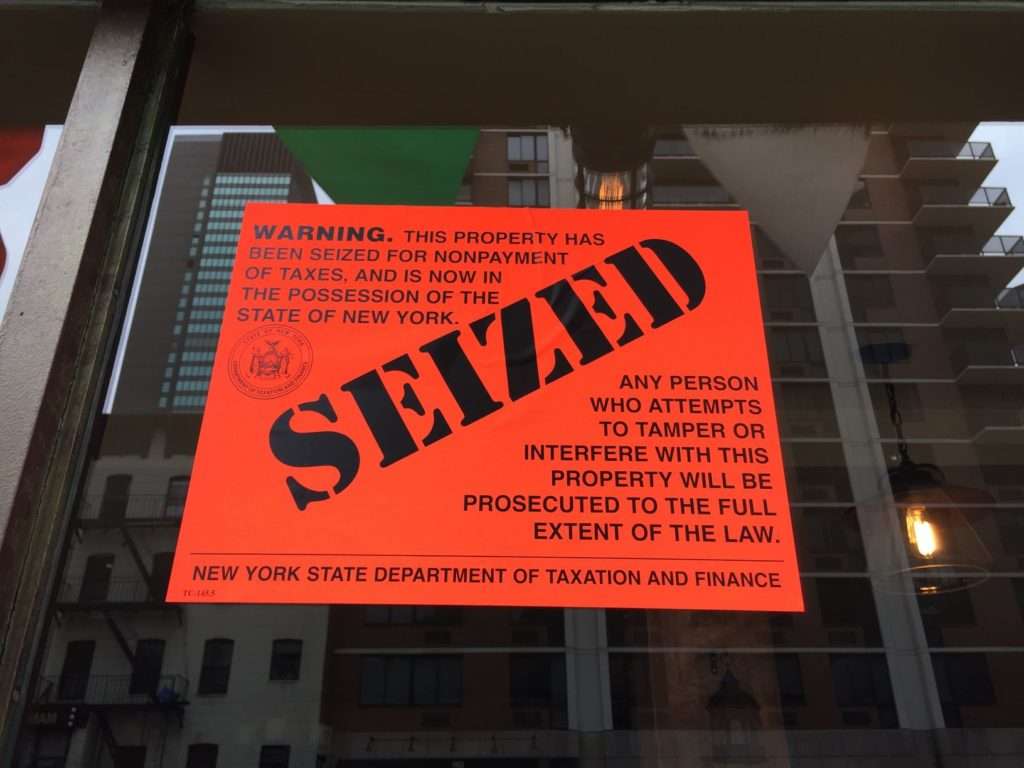What you need to know about Civil Asset Forfeiture

The police can’t just take your property if you didn’t commit a crime, right? Wrong. According to federal and state civil asset forfeiture laws, the police have the right to “seize and forfeit” property from people if they have “clear and convincing evidence” that the property was used to carry out certain crimes or it was the result of criminal activities.
Civil asset forfeiture laws in many states only permit forfeiture under strict regulations. However, notwithstanding these regulations, numerous law enforcement agencies across the country have been accused of civil asset forfeiture abuse.
If the state or federal government is unfairly seizing your property, it’s essential to consult with an experienced criminal defense lawyer.
Continue reading to learn more about the intricacies of civil asset forfeiture and the rampant civil asset forfeiture abuse perpetrated by law enforcement agencies across the nation.
WHAT IS CIVIL ASSET FORFEITURE?

An online search for “laws about civil asset forfeiture by state” quickly reveals that every state does it slightly differently. Some states don’t allow civil asset forfeiture at all. However, it is legal at the federal level, and most states still have some form of civil asset forfeiture on the books.
Generally, civil asset forfeiture allows law enforcement officials to seize property used for or derived from criminal activity. It’s used to punish criminal activity and take away the tools they use to commit crimes. What’s important to note is that civil asset forfeiture doesn’t require an actual conviction.
That means that law enforcement can take property from individuals so long as:
- There is a legal basis for the property seizure, and
- A judge gives permission for the seizure.
However, there are exceptions. In some cases, the police can seize property without the court’s permission.
Most types of property can be seized under asset forfeiture laws, including but not limited to:
- Residential, vacation, and rental properties
- Property upgrades (i.e., appliances, security systems, etc.)
- Personal property
- Any type of vehicle
- Assets like cash, securities, and proceeds from illegal activities
CIVIL ASSET FORFEITURE BY STATE AUTHORITIES
For the most part, law enforcement officials are not likely to seize property involved in petty or misdemeanor crimes. Further, individuals are typically not at risk of property forfeiture for items used in or resulting from crimes if they were not aware of the criminal activity.
However, if someone is “willfully blind” to criminal activity, they may be subject to property seizure. For example, suppose Fred overhears his brother telling an acquaintance that he will use Fred’s abandoned property to hide illegal drugs.
In that case, Fred may be guilty of “willful blindness,” and his property may be subject to forfeiture, even though he didn’t commit any crimes himself. Additionally, depending on the state you’re in, law enforcement can potentially seize assets without a judge’s permission under the following circumstances:
- Law enforcement has probable cause to believe that the property is a health risk to the public.
- The property is otherwise subject to forfeiture.
- The property was seized via search warrant.
- Law enforcement seized the property during a legal administrative inspection.
- The property was seized during an arrest.
It’s important to note that the police must follow strict guidelines when seizing property without the court’s permission. If they do not, they may be in violation of a state’s search and seizure laws.
CIVIL FORFEITURE ABUSE FREQUENTLY ASKED QUESTIONS
Most people are not aware that civil asset forfeiture can happen to someone who is guilty and someone innocent. That’s because the burden of proof to sustain civil asset forfeiture is much lower than that used in criminal court proceedings.
With that in mind, we’ve provided a few answers to commonly asked questions about civil asset forfeiture abuse below.

WHAT’S THE PURPOSE OF CIVIL ASSET FORFEITURE?
Generally, state, and federal laws allow civil forfeiture to decrease instances of organized crime and punish criminal behavior. In many cases, law enforcement agencies repurpose the property to go after more criminals.
However, police departments use civil forfeiture in many other circumstances as a revenue generation tool, making them more likely to seize property than otherwise.
CIVIL FORFEITURE IS ONLY FOR CRIMINALS, RIGHT?
People who are genuinely ignorant to any criminal activities involving their property are not subject to civil forfeiture. However, it’s not always easy to prove that you had no information about certain crimes or weren’t involved in criminal activity.
If your property is unfairly seized by law enforcement, there are options available to get it back. However, fighting civil forfeiture can be an uphill battle. That’s especially true if you don’t work with an attorney familiar with the complexities of civil asset forfeiture laws.
HOW CAN I FIGHT CIVIL FORFEITURE?
Civil forfeiture involves aspects of criminal law and civil law (potentially at the federal and state levels). Generally, an attorney is more likely to get seized property returned if they could show that law enforcement neglected certain procedures or conducted an illegal search and seizure.
Two Former Federal Prosecutors Talk About Forfeiture
The civil forfeiture laws can be complex. For a better understanding about the laws on asset forfeiture, this video will help:

